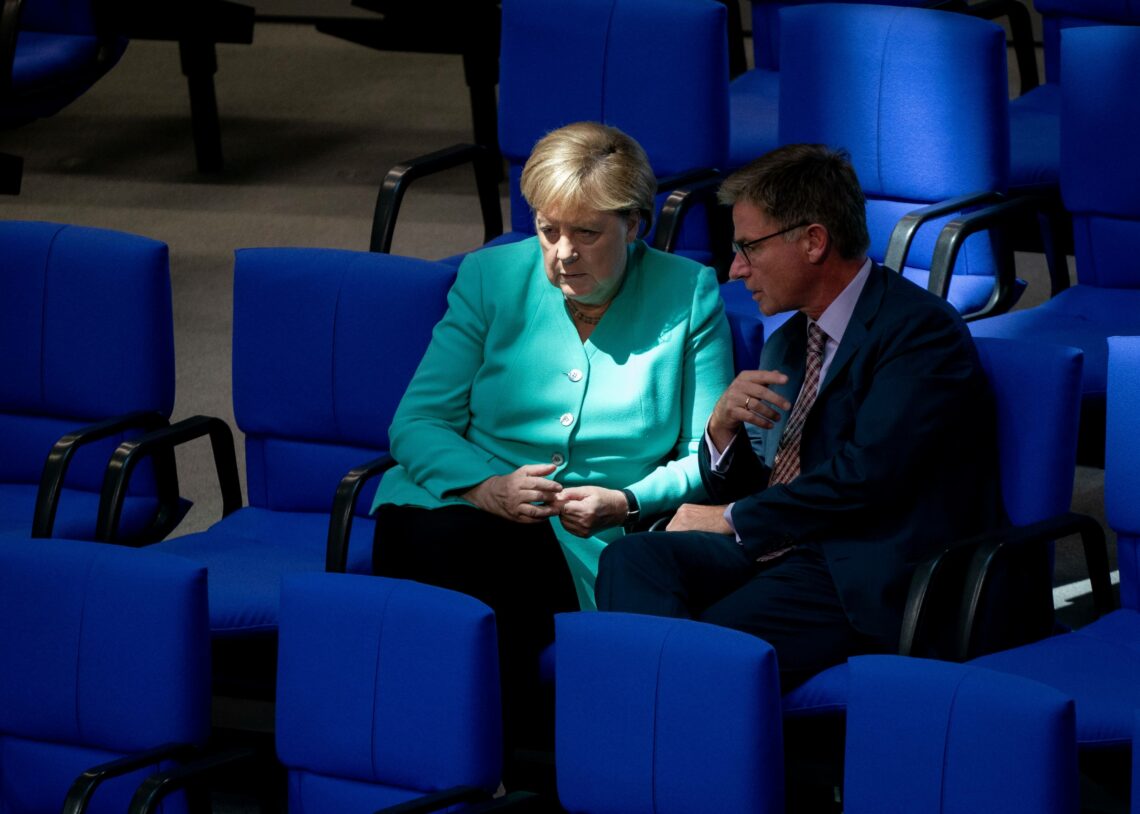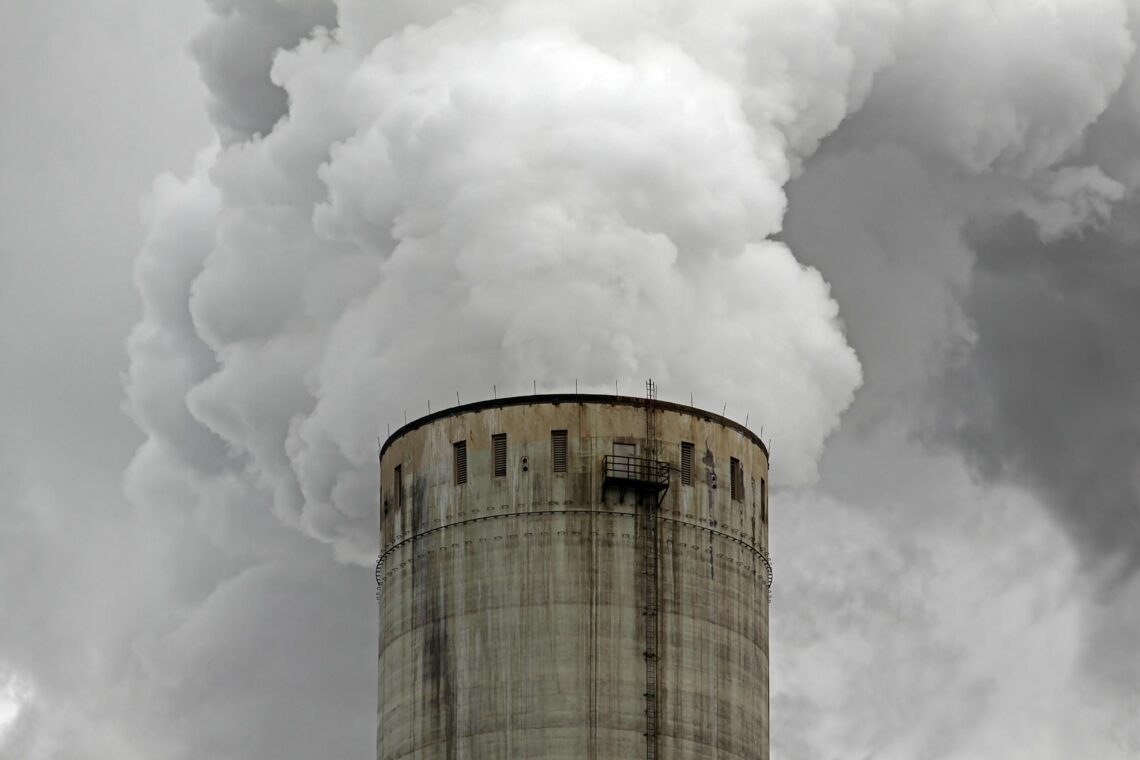Focus Germany: Taxing climate subsidy, subsidizing climate tax
Germany is struggling to achieve its current environmental goals and its new policy package is unlikely to provide a clear path forward. The taxes and subsidies it foresees contradict each other and could ultimately impede technological advancement. The proposal has proven disappointing to climate activists and economic critics.

In a nutshell
- Germany’s greenhouse gas emissions have increased over the past decade
- A new tax and subsidy package contains additional spending and a carbon dioxide levy in select sectors
- The proposed measures could lead to economic inefficiency
GIS’s Focus Germany series examines key issues facing the European Union’s most crucial member and the continent’s economic powerhouse.
Policy is a trade-off between the imaginable and the feasible, and German climate policy is a case of ambitious goals being held in check by reality. Berlin’s most recent attempts at establishing a balance have ended in complication and contradiction.
Climate policies can be evaluated in terms of goals, instruments, and results. Germany has had ambitious goals for a long time. Critics from all political and economic backgrounds have been pointing out the misalignment of these goals and instruments. The results of the policies are mixed as well. The set of new provisions proposed by the German government in September 2019 is likely to make things even worse.
Mediocre results
Germany has the sixth-largest greenhouse gas emissions (GHG) in the world, with a 2.1 percent share of the global total. The country is aiming for a 40 percent reduction by 2020, 55 percent by 2030 and up to 95 percent in 2050, compared to 1990 levels. The share of renewables in gross final energy consumption is to rise to 60 percent by 2050.
Reality, however, tells a different story. Germany is in the process of phasing out both nuclear and coal power and has invested hundreds of billions of euros in the shift to renewable energy. Yet, the share of renewables in German energy consumption was around 35 percent as of 2018. While its production capacity has increased by about 145 percent in the last decade, its share of power consumption only increased by some 130 percent. This shows that renewables are not adding efficiency to the energy mix; the rate of increase also falls short of achieving the country’s official climate goals.
Germany has the sixth-largest greenhouse gas emissions in the world.
More importantly, GHG emissions have increased over the past decade. For example, in 2009, Germany emitted 788, 924 tons of carbon dioxide, which is a reduction of about 24 percent in comparison to 1990; by 2017, the country had increased its emissions to 797, 966 tons, around 24 percent less than in 1990 but still an increase of about one percent. In the same period, the German economy grew by roughly 8 percent. On the one hand, these numbers imply that the German economy has increased its climate efficiency since it decreased its emissions per unit of gross domestic product (GDP). On the other hand, Germany has absolute emission reduction goals, which cannot adjust to population or economic growth.

While the results are not necessarily bad, they fall significantly below the government’s goal for 2020. Faced with this shortcoming, German Chancellor Angela Merkel decided to abandon the 2020 goals while continuing to commit to those for 2030 and 2050. Once hailed as the “climate chancellor,” Ms. Merkel faced political backlash for her decision. Increasingly militant protests demand more action from the government. Also, failure to meet its emissions reduction targets could cost Germany. Under European Union rules, the country could be fined – observers stipulate in billions of euros – as of 2021 if it doesn’t meet the bloc’s emissions reduction targets.
It is against this backdrop that the climate package of September 2019 was created.
Taxes and subsidies
The package does not change emission reduction goals but implements new policy instruments. It foresees additional government spending of around 54 billion euros in climate change-related activities. It also introduces a levy on carbon dioxide emissions in select sectors. According to the German government, the package is budget neutral, meaning spending is compensated by taxes as well as by cuts in other programs, even in environmental programs. The full kit is as follows:
- As of 2021, progress toward fulfilling emission reduction goals will be monitored annually on a sector-by-sector basis; in underperforming sectors, the respective ministries will have three months to propose new measures
- There will be substantial subsidies for buying electric cars and substituting fossil-fueled heating systems with climate-friendly technologies
- The installation of oil furnaces will be banned entirely from 2026
- The current levy on air transportation will be increased. At the same time, the value-added tax on train tickets will be reduced and the rail-network will be expanded. Also, commuters will be able to increase their tax deductions
- A new levy on carbon dioxide emissions in transportation and heating will be introduced in 2021, starting from 10 euros per ton. It will double to 20 euros in 2022 and then rise by 5 euros each year, up to 35 euros in 2025
Different political demands are, however, noticeably absent from the package, for example:
- A general carbon dioxide levy of around 45 euros per ton of emissions on all activities, including consumption and investment
- Banning domestic flights and restructuring the air transportation levy with an emission tax
- Phasing out the use of coal and other fossil fuels by 2038
- Sustainability and “greening” in financial activities
- Additional or enhanced instruments for renewable energy
No praise
Immediately after its release, the package faced public criticism in Germany. A poll by the German state television station ARD showed 63 percent of voters thought the government should prioritize climate protection over economic growth. Only 24 percent believed economic growth should be prioritized. The levy on carbon dioxide emissions has been criticized for being too low. The Organisation for Economic Development and Co-operation (OECD) calculated that an effective tax on fuels that reflects the climate costs of carbon emissions would need to be above 30 euros per emitted ton. In German media, economists tend to agree that the new tax should be at least 50 euros to provide an adequate incentive.
In critics’ eyes, raising tax deductions for commuters and cutting the cost of electricity – one of the highest in Europe – would undermine the German government’s effort to induce more people to save fuel and energy. Also, the misalignment between goals and instruments persists, especially regarding renewable energies. It has not been addressed by any measures in the package.
The package simultaneously increases and decreases the costs of emissions.
The green movement, especially, was expecting a detailed schedule for banning all fossil fuels, as well as more ambitious goals like a new emission reduction goal. The environment ministers of Denmark, France, Latvia, Luxembourg, the Netherlands, Portugal, Spain and Sweden wrote a letter to other EU member states, urging the bloc to reduce its emissions by 55 percent rather than 40 percent. The German government refused to join the signatories.
Most of those criticisms draw on ideology or political opportunism. From a more economic point of view, however, the German package does not deserve any praise either. It is obviously inconsistent. As pointed out before, it simultaneously increases and decreases the costs of emissions. But more importantly, it selects instruments without regard to their efficiency.
Take the carbon levy as an example. Sweden and Switzerland have similar taxes at much higher rates, above 100 euros per ton. While these countries were able to reduce their emissions, they did so in sectors not covered by the levy. In transportation and heating, targeted by the tax, there have been no significant emission reductions. Yet Germany plans to apply the levy to these sectors.
Subsidizing some technologies at the expense of others is a potentially dangerous practice. Firstly, subsidies lead to economic inefficiency of the supported technologies. Germany should learn from its past. Its energy prices are among the highest in Europe, while the productivity of energy providers is among the lowest. This is the direct fruit of a dense web of subsidies that are paid out even when no energy is produced. Secondly, subsidizing specific technologies is a gamble against any other technological developments.
It is especially questionable for a country characterized by its decentralized structure and a substantial industrial base to curb transportation. The sector not only guarantees the functioning of the German supply chain, but also distributes production capacity throughout the country. It integrates peripheral regions into the economy and works to the advantage of lower- and middle-income citizens. The economic costs of interfering are exorbitant. Pivoting it against climate change deepens the political divide about what should come first.
Subsidies lead to economic inefficiency of the supported technologies.
Additionally, the package leaves massive leeway for government intervention. The annual monitoring process it foresees inflates the already baroque German administration. Obliging ministers to devise new instruments every year opens the floodgate to political activism.
Finally, even left-leaning economists noted that the 54 billion euro would be spent by 2023. This only confirms that the package is just the first step in a series of increased government spending and intervention. Chancellor Merkel remarked that politics is the art of the feasible. But this package is instead the epitome of the unimaginable.








